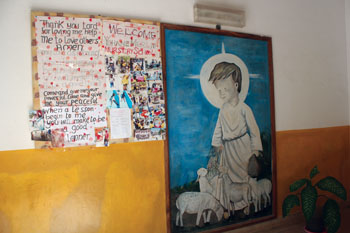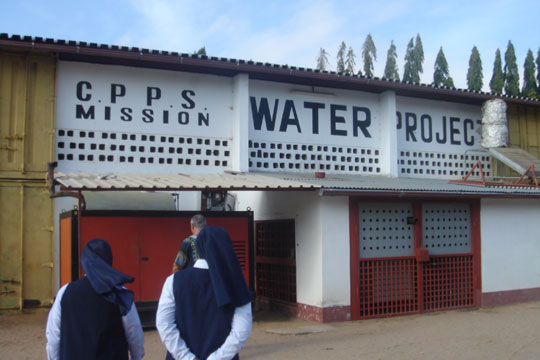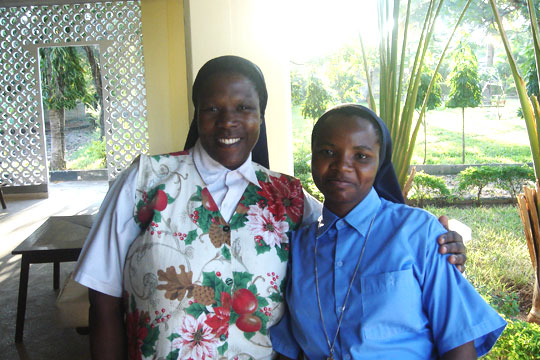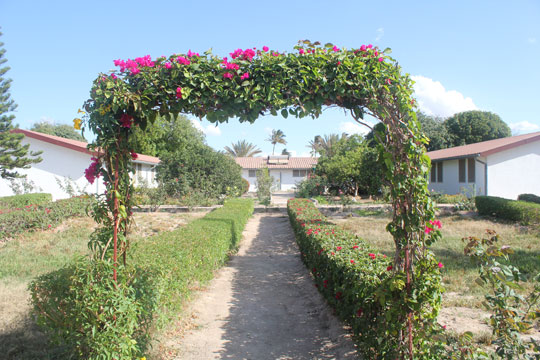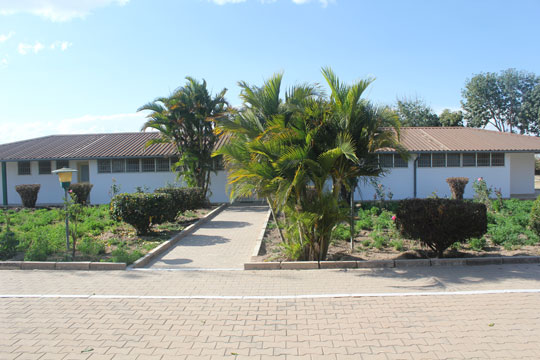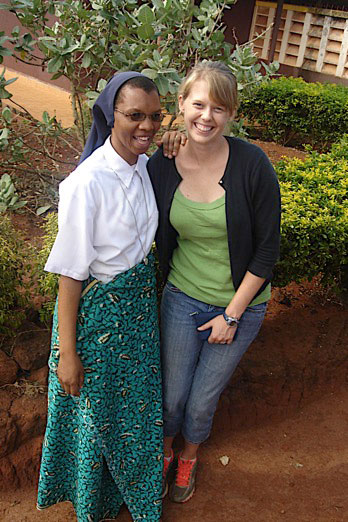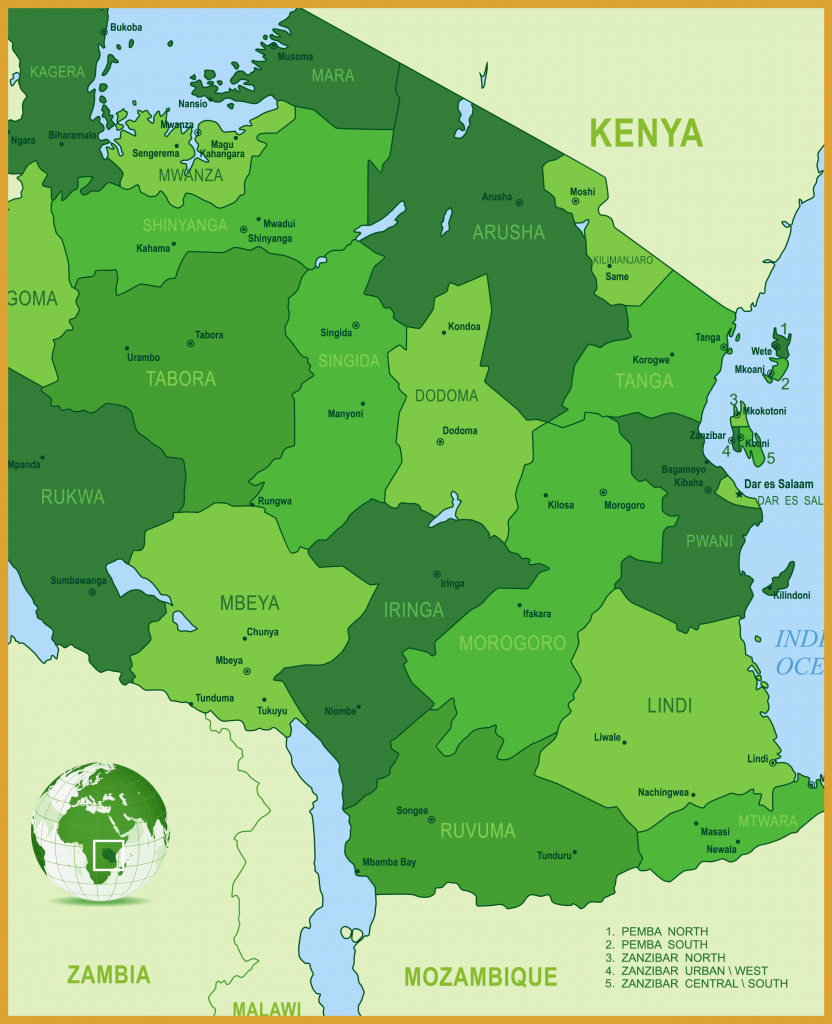
Alumna finds inspiration, purpose at ASC Ministries in Tanzania
By Katie (Valliere) Streit ’08
Editor’s Note: After graduating with degrees in English and secondary education, Katie (Valliere) Streit taught middle school for two years, then enrolled in a Ph.D. program in history at the University of Houston. A course in African history set her life “on an unexpected path” as she learned that there is more to the continent than stereotypical images of exotic animals, disease, hunger and war. She became especially interested in Tanzania, and visited the country in 2013.
As Streit prepared for a second research trip in 2014, she met up with Professor Emerita (History) and former Newman President Tarcisia Roths, ASC, who helped put Streit in touch with ASC sisters living and working in Tanzania. Streit conducted two weeks of research at the University of Dar es Salaam, then lived at a Swahili language school in Morogoro for a month. She spent her final two weeks in the country with the sisters in Dar es Salaam and other ASC communities. Following is a narrative she wrote about her visit.
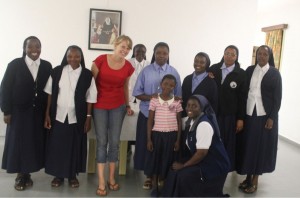
Katie (Valliere) Streit ’80 with the Adorers of the Blood of Christ in Dodoma, l-r: Florida Evaristi, ASC; Evetha Lucian, ASC; Scholastica George, ASC; Caritas Alyoce, ASC; Sabina (a student in the school); Theresia Rogatus ASC; (kneeling), Mariana Peter, ASC; Honorata Vitalis, ASC, and Martina Marco, ASC.
From the beginning, I was very excited by the prospective of staying with the sisters. Not only would they provide a safe environment where I could practice my Swahili, but I would be surrounded by loving, Christ-centered women who could deepen my understanding of Tanzania. What I did not expect was that they would so warmly embrace me into their extended family across the country. I met over 30 sisters during my travels from different regions across Tanzania. Of their many virtuous qualities, two repeatedly struck me: the sisters’ overwhelming generosity and their commitment to service.
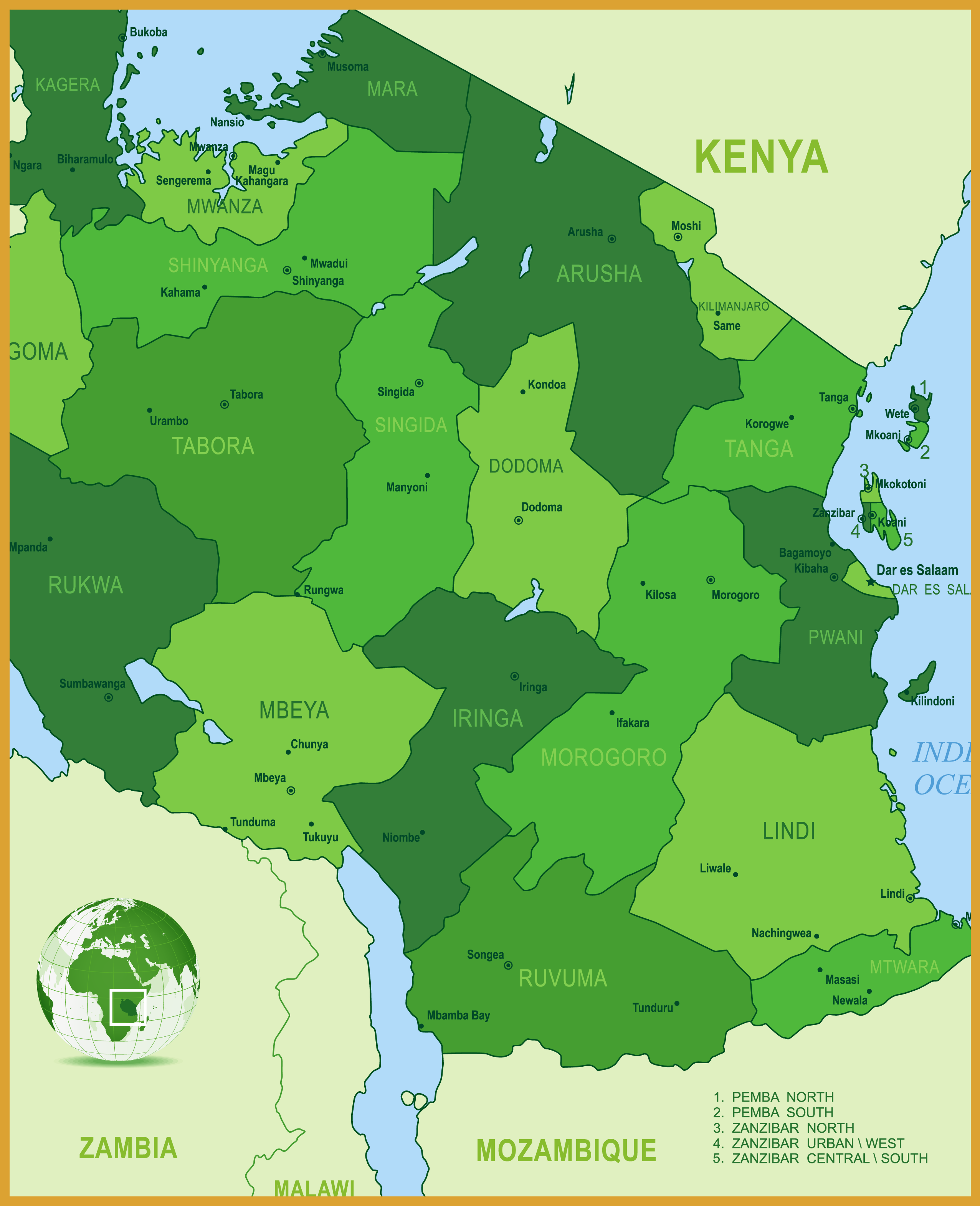 I first met the sisters in Dar es Salaam the week before I left for Morogoro. They invited my professor and I to visit their newest community and insisted on picking us up. Any nervousness I might have felt immediately dissipated when I saw Sister Rose enthusiastically waving to us from the vehicle. She greeted us as if we were long-lost relatives, hugging us and holding our hands throughout the journey (a sign of friendship in Tanzania).
I first met the sisters in Dar es Salaam the week before I left for Morogoro. They invited my professor and I to visit their newest community and insisted on picking us up. Any nervousness I might have felt immediately dissipated when I saw Sister Rose enthusiastically waving to us from the vehicle. She greeted us as if we were long-lost relatives, hugging us and holding our hands throughout the journey (a sign of friendship in Tanzania).
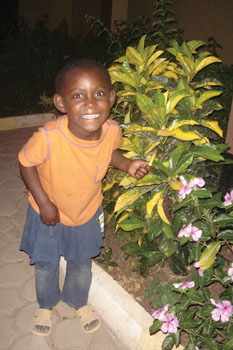
Neema attends the newly constructed ASC school in Dodoma and is the daughter of the family that watches over the property.
During our visit, the sisters offered me a kanga (a beautiful piece of cloth women wrap around their heads or waists) so that I would not get overheated by the mid-day sun. The sisters in Morogoro showed me similar kindness when they greeted me at my school, offering me two dozen eggs as a generous welcoming gift.
Before I returned to Dar es Salaam, I decided to travel to the capital of Tanzania, Dodoma, to visit the sisters for a day. I particularly wanted to meet Sister Euphrasia and thank her in person for organizing my stay with the sisters. Once again I was humbled by the sisters’ generosity as they offered me a spacious room and delicious meals.
Rather than returning to Dar es Salaam by bus (over 8 hours and approximately 380 miles), the sisters insisted I ride with Sister Rosie and two fathers from the Missionaries of the Precious Blood. Along our journey, I learned about the long history of friendship and cooperation between the two orders that dated back to the original founders.
When I arrived in Dar es Salaam, I immediately felt at ease. The sisters provided me with a beautiful room and offered me friendship and a home away from home. During my visit, I got to know the six resident sisters and one sister visiting from Mozambique. We laughed together as they taught me how to cook and speak/pray/sing in Swahili. We prayed together each morning and evening. And they grieved with me when I learned of the passing of my grandmother. Their love and prayers gave me comfort and strength.
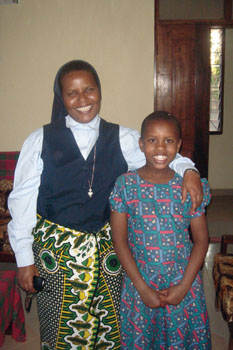
Sister Euphrasia and Maria, an orphan the sisters took in, who speaks English and hopes to become a sister in the future, in Dodoma.
The sisters were also devoted to their mission of serving God and those in need. In each community, the sisters were constantly at work maintaining and improving their facilities, while making sure that nothing went to waste. Any acre of land not dedicated to living quarters was utilized for agriculture and livestock.
The sisters are committed to improving the health, education, and well-being of the least fortunate in society – particularly women and children. The sisters in Dar es Salaam split their time between three local parishes and visit the sick and dying each Friday. They also run a kindergarten and accommodate sisters traveling to Dar es Salaam for medical treatment.
The 20-plus sisters living in Dodoma have a wide range of duties, starting with the operation of a vocational house for novices. They also run a kindergarten that educates approximately 180 students. Some of the sisters work at a nearby hospital owned by another Catholic order, while others teach at St. Gaspar School (run by the Precious Blood Fathers). The sisters additionally work at a community that cares for orphans and children with AIDS. Sister Euphrasia regularly visits local villages where single mothers have to walk over 4 miles each day to get water.
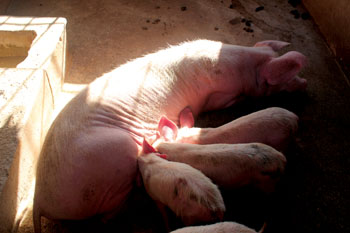
Streit said each ASC community raises chickens, but the livestock in Dodoma was truly impressive: numerous chickens and turkeys, 10 cows, and six to eight hogs with piglets.The sisters use them to sustain themselves and sell to support their ministries.
While all this work was truly impressive, I was most inspired by the ministries of the new community led by Sister Stella. These sisters constructed a dispensary for pregnant women and their children in a remote area. Rural communities throughout Tanzania face serious health issues, as access to medical treatment is limited. Unfortunately, many of the government hospitals in these areas lack equipment and/or employ doctors who resist treating patients unless they can pay.
Sister Stella explained that only a few days before, the wife of a field hand faced complications during labor. The midwife arrived intoxicated, administered an unknown dosage of medication, and told the woman to find a motorcycle to get to the hospital over an hour away. Although a truck was eventually found, the doctor refused to see her unless she had money. Hours passed and when the woman was finally seen, the child had been lost.
The sisters were outraged by the senseless loss of life. Sister Stella explained that they built the dispensary for those women and children. They do not care if the government hospitals are upset by their presence, nor are they discouraged that they do not have adequate supplies yet. There is a desperate need in the community and they will not turn their backs to it.
In that moment and those that followed with the sisters, I realized that my purpose in coming in Tanzania was no longer just conducting dissertation research. Rather, I needed to find ways to help these women who selflessly give their gifts in the service of others.
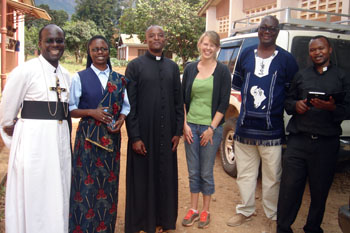
Streit in Morogoro with, l-r: Fr. John CPPS (pastor of Morogoro); Rosemary Baltazary ASC; Fr. Henry Nila CPPS; Fr. Richard Mjigwa CPPS, and Deacon Danford CPPS. The men are members of the Missionaries of the Precious Blood.
One way I can help is by raising awareness about the sisters and their ministries. Newman University is a product of the same devotion, work ethic, and generosity of the ASC sisters in Wichita. My hope is that the students, faculty, staff, and alumni of Newman can offer our gifts in support of these sisters – whether through fundraisers or developing a study-abroad program. Newman’s core values are built upon a “passion to serve others” and commitment “to promoting interdependent global perspective formed by a critical consciousness that hungers and thirsts for justice and peace.” We find ourselves with a unique opportunity to live these values while building relationships with our fellow brothers and sisters half a world away.
In the end, I left Tanzania not only with a greater appreciation and understanding of the world and my place within it, but also with a renewed motivation to serve, and friendships that I will treasure for the rest of my life.
Streit will return to Tanzania this year to do further research. She expects to receive her Ph.D. in May 2016.
Additional photos from Streit’s visit to Tanzania:


